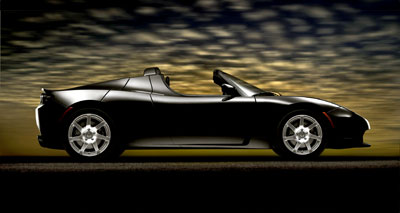
We have taken the time to collect some pertinent basic information on electric cars from various sources, mainly the Auto-HowStuffWorks site.
Electric cars are something that show up in the news all the time. However, people are little aware about them. It seem that we all are at the beginning of a long important process of change. There are several reasons for the continuing interest in electric vehicles:
- Electric cars create less pollution than gasoline-powered cars, so they are an environmentally friendly alternative to gasoline-powered vehicles (especially in cities).
- Any news story about hybrid cars usually talks about electric cars as well.
- Vehicles powered by fuel cells are electric cars, and fuel cells are getting a lot of attention right now in the news.
An electric car is a car powered by an electric motor rather than a gasoline engine.
From the outside, you would probably have no idea that a car is electric. In most cases, electric cars are created by converting a gasoline-powered car, and in that case it is impossible to tell. When you drive an electric car, often the only thing that clues you in to its true nature is the fact that it is nearly silent.
Under the hood, there are a lot of differences between gasoline and electric cars:
- The gasoline engine is replaced by an electric motor.
- The electric motor gets its power from a controller.
- The controller gets its power from an array of rechargeable batteries.
A gasoline engine, with its fuel lines, exhaust pipes, coolant hoses and intake manifold, tends to look like a plumbing project. An electric car is definitely a wiring project.
They may look similar from the outside. But there are many significant under-the-hood differences between an electric-powered car and a car that makes use of an internal combustion engine. How much do you know about electric cars?
Take Electric car Whiz
Any car is a wonderful thing. It can take you where you want, when you want -- even when those places aren't served by public transportation. In fact, much of modern life would be impossible without cars. They help us get to our jobs, schools, grocery stores or even just to the local shopping mall. Unfortunately, as wonderful as cars are, they also have some serious drawbacks. Two of these drawbacks are that they often cost a lot of money to maintain and they pollute the atmosphere with noxious gases.
Air pollution has become a serious problem in many urban areas, and with
gasoline prices at record highs, the internal combustion
engine may soon be a luxury that society simply can't afford.
Few people would advocate giving up cars altogether, but is there a way we can have the power and convenience of an automobile without the pollution and expense caused by burning gasoline? Fortunately, there is. Many people think that the cars of the not-so-distant future will be powered not by gasoline, but by
electricity. In fact, these
electric cars -- also known as EVs or electric vehicles -- aren't futuristic at all. Electric vehicles have been around since the first half of the 19th century; however, even now in the 21st century, internal combustion engines still rule. But why haven't electric cars caught on?

The heart of an electric car is its
battery. Unlike the batteries in most cars, which primarily serve to start the engine and run accessories like the
radio or
air conditioner, the battery in an electric car runs everything. Most importantly, it runs the electric motor -- or, more precisely, it runs a
controller which in turn runs the electric motor -- so it needs to be powerful and long-lasting enough to take drivers where they need to go with a minimum of recharging. Automobile manufacturers have identified three types of rechargeable battery as suitable for electric car use. Those types are
lead-acid batteries,
nickel metal hydride (NiMH) batteries, and
lithium-ion (Li-ion) batteries.Until recently, no reliable, mass-producible batteries have been manufactured that could make electric cars competitive with gas-powered cars. However, that's beginning to change. Electric cars have not only become feasible, but they're now expected to start rolling off the assembly lines of major automobile manufacturers.
It is claimed that China is going to
kill the combustion engine in the near future...but this is another story and a reason for our readers to come back soon.










